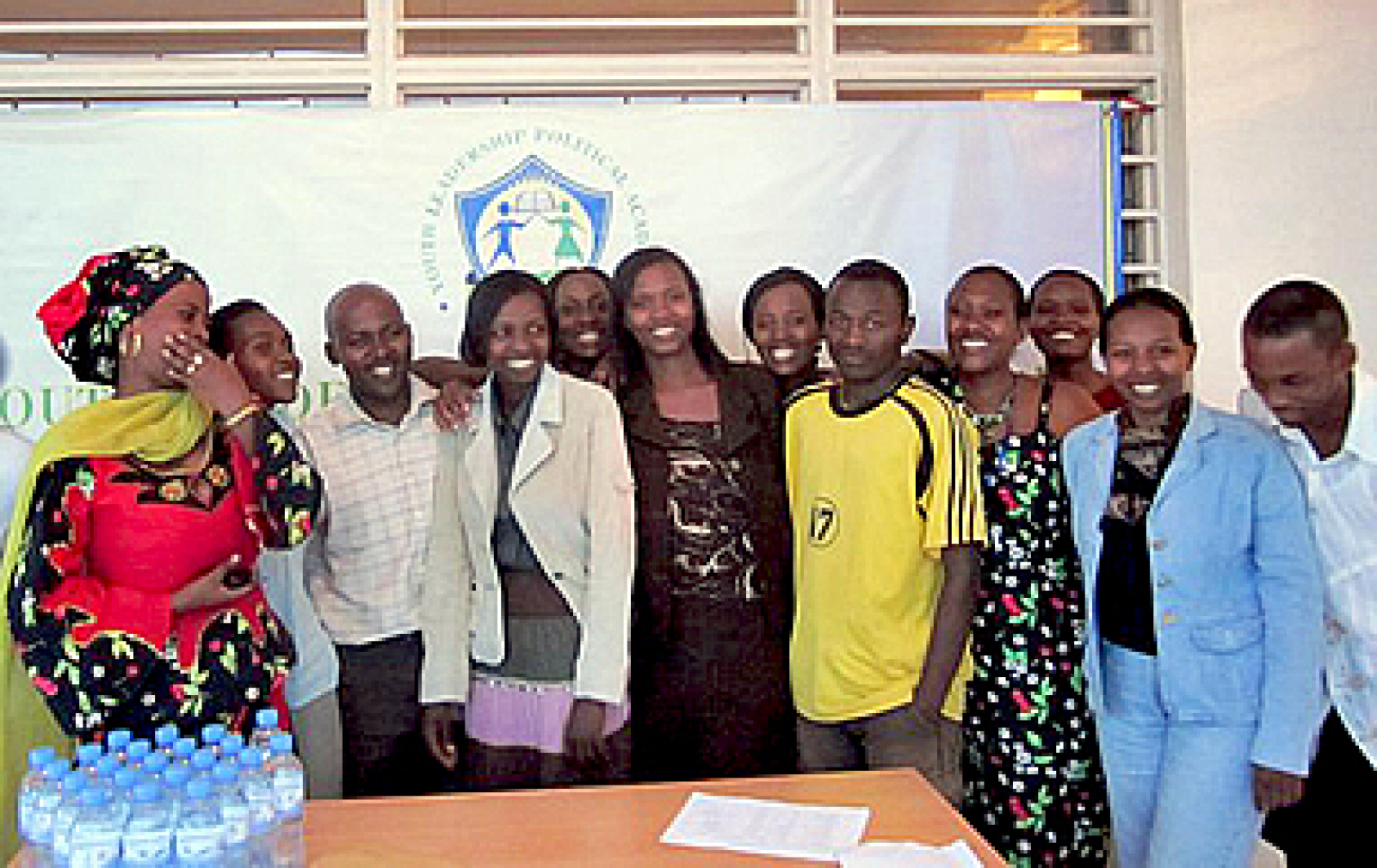
SHARE
Ben Fuller of the Service Employees International Union (SEIU) went to Rwanda as a trainer for NDI to work with young political leaders from all 10 Rwandan political parties. He recounts his experience in this piece that originally appeared on the SEIU blog.
On a warm rainy day in April, I found myself in an all-too-familiar position; sitting behind a projector talking through the use of information and communication technology (ICT) in political campaigns and answering questions about how to use databases, websites, mobile phones and email to organize, educate and activate voters to build political strength. While this is a workshop I have presented countless times in my role with the SEIU political department for the past three years, I was not in one of the familiar SEIU locals or campaign offices where I might normally deliver the seminar. Instead, I was in an office overlooking a lush green valley in Kigali, Rwanda.
I came to this small land-locked country in central Africa as a guest-lecturer with the National Democratic Institute for International Affairs (NDI), a non-governmental organization whose mission is to help democracy flourish in developing countries worldwide. My workshop covered the basics of online campaign and political party management using ICT.
My audience was a group of 50 young leaders (18-30 years old) representing the 10 political parties in Rwanda. The group of 50 participants — college students, professionals and regionally elected officials — included some of the most influential political youth leaders in the country. These political leaders were participating in a 10-week Youth Party Leadership Academy ("The Forum"), a joint project of NDI and the Rwandan Forum for Political Parties.
The Political Party Rhetoric of Rwanda
The week I was in Rwanda was a somber one. I was visiting the country as they commemorated the 16th anniversary of the hundred-days of genocide that devastated the country, and for a fleeting moment made Rwanda the international example of the horrors of post-colonial Africa. As I spoke with Rwandans throughout the week, it was clear that the memory of the million men, women and children killed in 1994 was still at the forefront of their minds. To many survivors and observers, the political party rhetoric of the time accelerated the onset of the genocide. The pre-genocide political party system incubated the ethnic division, provided organization, and promulgated genocidal rhetoric that led to the unimaginable massacres in 1994.
Rwanda's history made the workshop that I was leading all the more timely. NDI and The Forum deliberately focus on youth leaders, as it is their leadership that will determine the future of political parties of Rwanda.
These young political leaders are the key actors in achieving the hopeful vision of peaceful political discourse. The Forum brought all of the country's political parties together with the goal of creating an environment of sharing and common cause. All the workshops focused on the sharing of tactics, ideas and resources among parties to ensure that the Rwandan political sphere of the future will never be the breeding ground for ethnic division and genocide that it once was.
Throughout the week of classes, the local NDI and Forum staff reinforced the use of ICT to promote the participants' respective party messages. We focused on building political party messages not based on personality or aimless cheap shots and dissention, but originating instead from party platforms built on well thought-out public policy. The workshop centered on the use of free web services (Facebook, blogs and email) to provide free, accessible vehicles to move party messages. The ICT for politics workshop aims to bring political parties in line with the recent government commitment to dedicate considerable resources toward creating a new technology-based economy.
After the end of my first class, I sat and talked over coffee with a few students, each from a different party. They began asking me questions about the recent health care legislation, such as:
- why the U.S. had to fight so hard for universal coverage that Rwandans (a less developed country) all enjoyed and viewed as a right;
- why U.S. politics was so poisonous;
- why Tea Party protesters they saw on TV were not voting in their best self-interest; and
- why Democrats were so weak, despite the fact they were in power of Congress and the presidency.
I was struck that these were many of the same questions that my American friends and colleagues wonder about. What was more remarkable was that these partisans of many different parties were able to sit and talk about core ideals of government — healthcare, social security, infrastructure development — something rarely seen in the U.S. political dialogue. There was an understanding among the parties that the main goal of politics was a better Rwanda. They had seen the result of divisive politics taken to the furthest extreme, something we in the U.S. see only see shades of today.
At the end of my 10 days in Rwanda, I realized that I had learned as much about politics and healthy party interaction as the Academy students had learned about ICT in politics.
And this learning did not stop when I boarded my flight home. Through email, I have been helping the students build websites for their parties. Through technology, we are not only able to engage Americans, but realistically create a global movement of people engaged in their government.
Ben Fuller is the assistant director for the field information services department at SEIU, where he manages the development of tools and strategies for improving organizing and political work using technology.
Pictured above: Participants at the Forum.
Published on May 4, 2010


